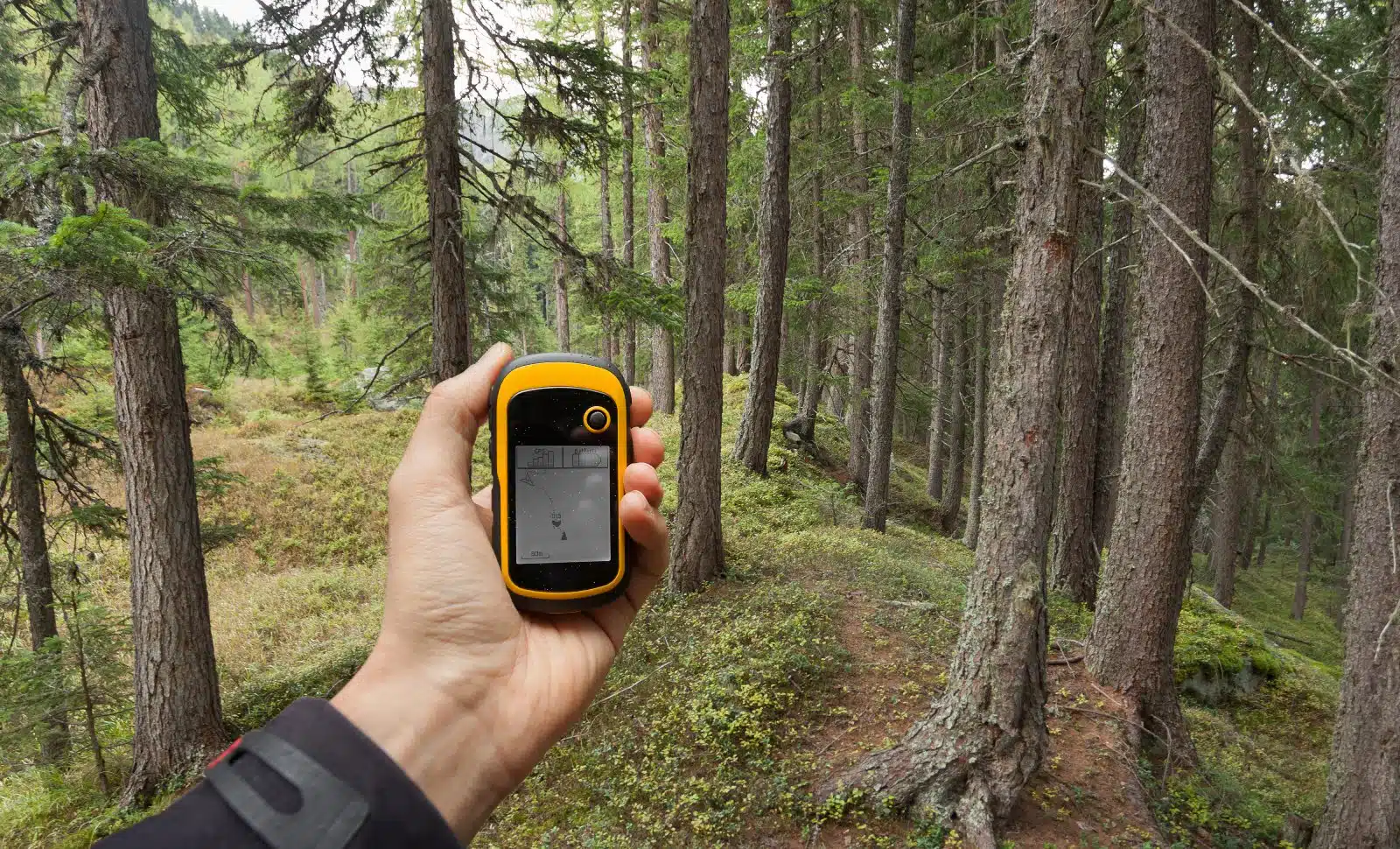In an era where environmental consciousness is appreciated and necessary, zero-waste travel emerges as a pivotal approach to responsibly exploring the world. This guide explores practical strategies for minimizing your ecological footprint while traveling, ensuring that your adventures contribute positively to the planet. Zero-waste travel is about making mindful choices, from packing to dining and everything in between, to reduce waste and promote sustainability. It challenges travelers to reconsider their habits and adopt practices that protect natural resources, support local communities, and preserve the beauty and integrity of destinations for future generations. By embracing zero-waste principles, travelers can enjoy enriching experiences that align with a commitment to environmental stewardship, setting a precedent for responsible tourism.
1. Planning and Packing

Image Credit: Shutterstock / Ground Picture
The foundation of zero-waste travel lies in thoughtful planning and packing. Opting for a minimalist approach lightens your load and significantly reduces the potential for waste. Essential items include reusable water bottles, coffee cups, utensils, and shopping bags, eliminating the need for single-use plastics. Investing in high-quality, durable travel gear can prevent the frequent replacement and disposal of items. Additionally, selecting eco-friendly, biodegradable personal care products minimizes your environmental impact in natural settings.
Insider’s Tip: Prioritize multi-functional items and those made from sustainable materials. For instance, a sarong can serve as a beach towel, a blanket, or a cover-up, reducing the need for multiple items.
2. Transportation

Image Credit: Shutterstock / Natee Meepian
Transportation is a major contributor to carbon emissions, but zero-waste principles can guide more sustainable choices. Opting for direct flights reduces fuel use, while traveling by train or bus offers lower carbon footprints compared to flying. Consider walking or cycling for shorter distances, which provide zero-emission exploration and a closer connection to your surroundings.
Insider’s Tip: When air travel is unavoidable, look for airlines committed to sustainability through carbon offset programs or those investing in more fuel-efficient fleets.
3. Accommodation

Image Credit: Shutterstock / Kmpzzz
Choosing where to stay plays a crucial role in zero-waste travel. Eco-friendly accommodations, from green hotels to sustainable hostels, often implement renewable energy use, water conservation, and organic farming practices. These establishments minimize their environmental impact and often offer a more authentic, local experience.
Insider’s Tip: Research and book accommodations certified by reputable environmental organizations, which often list their sustainability practices online for transparency.
4. Eating and Drinking

Image Credit: Shutterstock / Joshua Resnick
The choices travelers make for eating and drinking significantly affect their waste output. Favoring local, unpackaged produce reduces packaging waste, supports the local economy, and reduces the carbon footprint associated with food transport. Carrying reusable containers and cutlery facilitates zero-waste dining, even on the go.
Insider’s Tip: Visit local markets or dine at restaurants that source ingredients locally and seasonally, and always refuse single-use items like straws and plastic cutlery.
5. Exploring Responsibly

Image Credit: Shutterstock / TonelloPhotography
Responsible exploration is key to zero-waste travel. This means sticking to marked trails to prevent ecosystem damage, respecting wildlife and natural habitats, and adhering to local guidelines and regulations. Participating in ecotourism activities or volunteer opportunities can enhance your travel experience while contributing positively to the destination.
Insider’s Tip: Choose guided tours and activities offered by operators who prioritize sustainability and educate their guests on local environmental issues.
6. Shopping Sustainably

Image Credit: Shutterstock / BooFamily
Shopping sustainably during your travels involves seeking out local artisans and vendors, which not only provides you with unique, meaningful souvenirs but also supports the local economy. Opt for products made from local, sustainable materials and avoid items that contribute to over-tourism and environmental degradation.
Insider’s Tip: When shopping, use your own reusable bags and politely decline excess packaging or single-use bags offered by vendors.
7. Managing Waste

Image Credit: Shutterstock / frantic00
Even with the best intentions, some waste may be inevitable. Properly managing this waste is crucial. Familiarize yourself with local recycling and composting options, and ensure that you dispose of any waste according to local guidelines. In areas where recycling facilities are lacking, consider packing out recyclables to dispose of them properly later.
Insider’s Tip: Carry a small bag for collecting your recyclables until you can dispose of them appropriately, especially in remote areas or developing countries with limited waste management infrastructure.
8. Water Conservation

Image Credit: Shutterstock / Prostock-studio
Water is a precious resource, especially in destinations facing scarcity. Zero-waste travelers can conserve water by taking shorter showers, reusing towels, and choosing accommodations that employ water-saving practices. Additionally, using a reusable water bottle with a filter can reduce reliance on bottled water.
Insider’s Tip: If you’re traveling to a destination where tap water isn’t potable, invest in a portable water purifier or purification tablets to avoid buying bottled water.
9. Digital Documentation

Image Credit: Shutterstock / Antonio Guillem
In the digital age, travelers can minimize paper waste by opting for digital tickets, reservations, and guides. Not only does this reduce physical waste, but it also keeps important documents organized and accessible on your digital devices.
Insider’s Tip: Use apps and online platforms for maps, tickets, and guides, and back up important documents like passports and insurance information in secure cloud storage.
10. Leaving No Trace

Image Credit: Shutterstock / Alina Kruk
The Leave No Trace principles provide a framework for minimizing your impact while enjoying the natural world. These guidelines emphasize planning ahead, disposing of waste properly, respecting wildlife, and being considerate of other visitors, ensuring that natural spaces remain pristine for future generations.
Insider’s Tip: Educate yourself on the Leave No Trace principles before your trip, and apply them consistently, whether you’re camping in the wilderness or visiting a popular tourist site.
The Bottom Line

Image Credit: Shutterstock / Krotnakro
Adopting a zero-waste approach to travel is a powerful way to explore the world responsibly, ensuring that your adventures leave a positive mark on the planet. By planning carefully, making sustainable choices, and respecting the environments and communities you visit, you can enjoy enriching travel experiences that align with your environmental values. Remember, every small action counts; collectively, conscious travelers can make a significant impact. As you embark on your next journey, carry with you the commitment to tread lightly and explore mindfully, paving the way for a more sustainable future in travel.
More From The Green Voyage
12 Best Practices for Sustainable Travel in 2024 – How to Travel With Minimal Environmental Impact
Unlocking Hotel Perks – A Traveler’s Guide to Maximizing Hotel Reward Programs for Optimal Benefits
Travel Hacks for Frequent Flyers – 6 Tips and Tricks to Make the Best of Air Travel
The post 10 Zero-Waste Travel Tips – Minimizing Your Environmental Impact first appeared on The Green Voyage.
Featured Image Credit: Shutterstock / oatawa.
For transparency, this content was partly developed with AI assistance and carefully curated by an experienced editor to be informative and ensure accuracy.
Tips for Trip Success
Book Your Flight
Find an inexpensive flight by using Kayak, a favorite of ours because it regularly returns less expensive flight options from a variety of airlines.
Book Your Hotel or Special Accommodation
We are big fans of Booking.com. We like their review system and photos. If we want to see more reviews and additional booking options, we go to Expedia.
You Need Travel Insurance!
Good travel insurance means having total peace of mind. Travel insurance protects you when your medical insurance often will not and better than what you get from your credit card. It will provide comprehensive coverage should you need medical treatment or return to the United States, compensation for trip interruption, baggage loss, and other situations.Find the Perfect Insurance Plan for Your Trip
